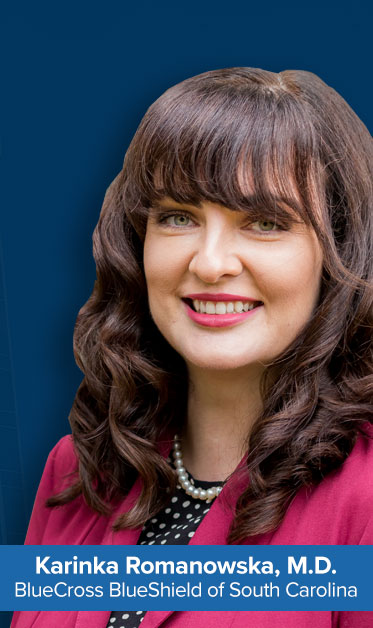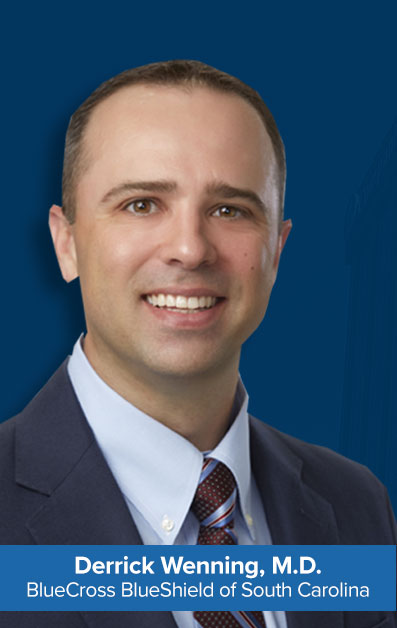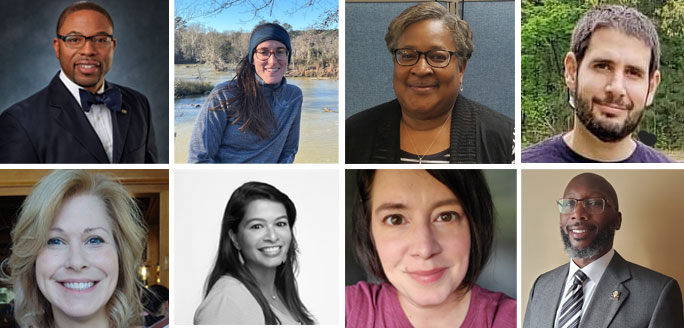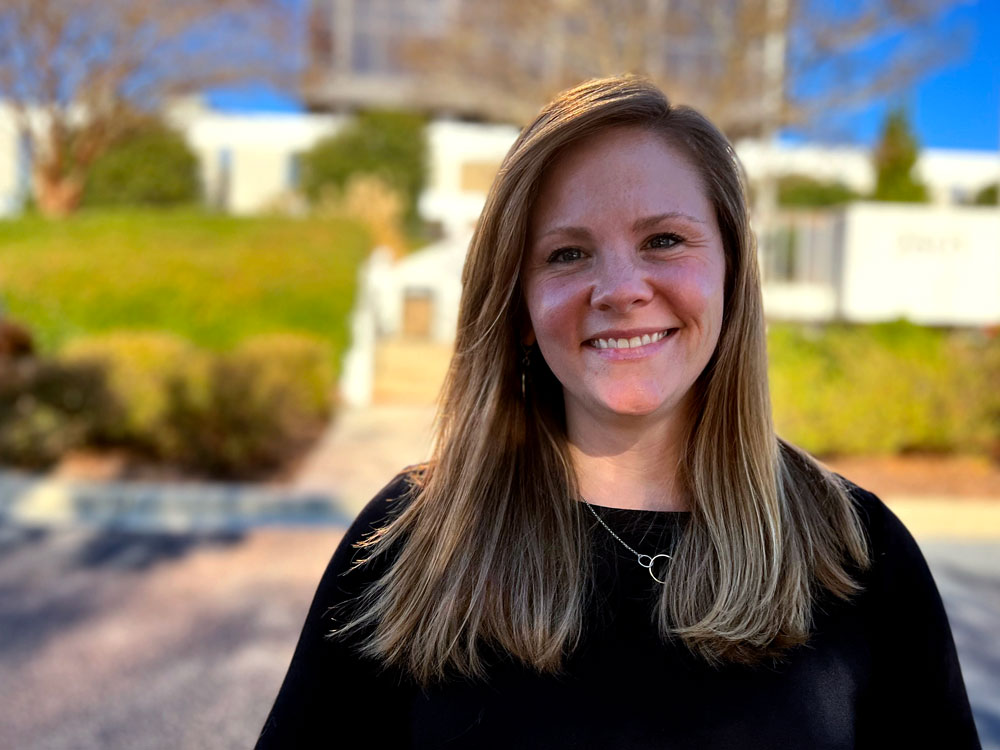Meet Our Newest Doctors
March 30, 2022
As a health care company, BlueCross BlueShield of South Carolina benefits from the expertise of our medical staff. Our doctors and nurses work with medical providers across the state to identify opportunities to improve our members’ health.
The pandemic has been difficult for the medical community. This Doctors’ Day, BlueCross wants to thank the physicians who have worked on the frontlines of the pandemic.
Two of our newest doctors share why they studied medicine and why they are using their medical knowledge to help our members.
Dr. Karinka Romanowska, associate medical director, started with BlueCross as a consultant in 2018. She joined the medical staff full time in 2021.
How did you decide on a career in medicine?
I’m very close to my aunt who is a pediatrician. Having grown up around medicine, I was drawn to this path from an early age. By the time I was in college, medicine was the only career I could imagine for myself. It just felt right. I went to medical school at Jagiellonian University in Poland, which is the same school where my aunt studied medicine.
What is your medical specialty?
I am a board-certified internist, which covers a wide spectrum in general medicine. It is very versatile, which is one of the reasons it appeals to me. I wanted to learn as much as possible and experience different specialties so I could apply these principles to patient care and hopefully be a better physician for it. My work at BlueCross offers great variety in medical topics. The types of cases I see are all over the board across all specialties and I’m always learning something new.
What made you decide to work at BlueCross?
I started consulting initially as a side gig to supplement and diversify my clinical work. Now working with BlueCross full time, in addition to the privilege of helping members get the care they need, I find this job provides rich and rewarding experiences in my daily responsibilities. I’m not surprised BlueCross is regularly named among the Forbes list of best employers. It is a very collaborative and collegial work environment.
What do you think people misunderstand about doctors?
It is an all-consuming profession. No one has the abundance of spare time they portray on TV shows. Being a doctor requires sacrifices that extend beyond the time it takes to earn a medical degree.


Dr. Derick Wenning, an associate medical director, joined BlueCross’ medical team in 2021.
How did you decide on a career in medicine?
I always wanted to be a doctor. I'm a first-generation college graduate. I was the first kid in my family, going all the way back, who had ever gone to college and graduated. Growing up, I always wanted to help people. I respected physicians for being knowledgeable and compassionate, so I wanted to join that profession.
What is your medical specialty?
When I got into medical school, I was undecided as to what kind of doctor I wanted to be because I didn't have anyone’s footsteps to follow. I didn’t decide what I wanted to do until my last year of medical school when I did a rotation in the emergency room and fell in love with that. I loved the fast pace and the team atmosphere. Everyone must work together for good patient outcomes. After residency in Columbia, SC, I completed a fellowship in pediatric emergency medicine at Wake Forest.
What do you like most about being a doctor?
I enjoy talking to people about their health care struggles to see how I can help. It is a call to service for me. The cases where your education pays off — where you save lives or where you make someone’s life better — are gratifying. I like being a listener. Being a good listener is the number one priority for a compassionate physician.
What made you decide to work at BlueCross?
While practicing clinically, I got a master’s degree in population health. I discovered there were scales of impact on health outcomes. When you are a clinical physician, you are making an impact on the scales in the tens. But if you look at health in general, the health of populations, you can make changes to address other struggles and have a much larger impact. Working at BlueCross, I get to apply my clinical knowledge but also the knowledge I have gained in social determinants of health and the study of population health to improve lives and keep people healthy.
What do you think people misunderstand about doctors?
Physicians and nurses are also human. Unfortunately, we don’t always have the answers. This can be frustrating to patients. To me, this is just as frustrating for the doctors.
Related Reading
 Come Work With Us
Come Work With Us
BlueCross once again has been recognized by Forbes as one of America’s best large employers. One of the ways the magazine determines these rankings is based on employees’ willingness to recommend their employer to others. We asked some employees what they thought of working at BlueCross and whether they would urge family or friends to apply.
Read More A Career in Technology at BlueCross
A Career in Technology at BlueCross
BlueCross is more than just an insurance company. It is also one of the largest technology companies in the Southeast. One of our longtime employees Jamie Evermann shares what it is like to work in technology here.
Read More 6 Veterans Share the Value of Military Experience
6 Veterans Share the Value of Military Experience
BlueCross knows hiring veterans brings in people with proven skills. Almost 600 BlueCross employees have military connections representing every branch of the U.S. armed forces. Several of them share how their military experience prepared them for careers with BlueCross.
Read More


















